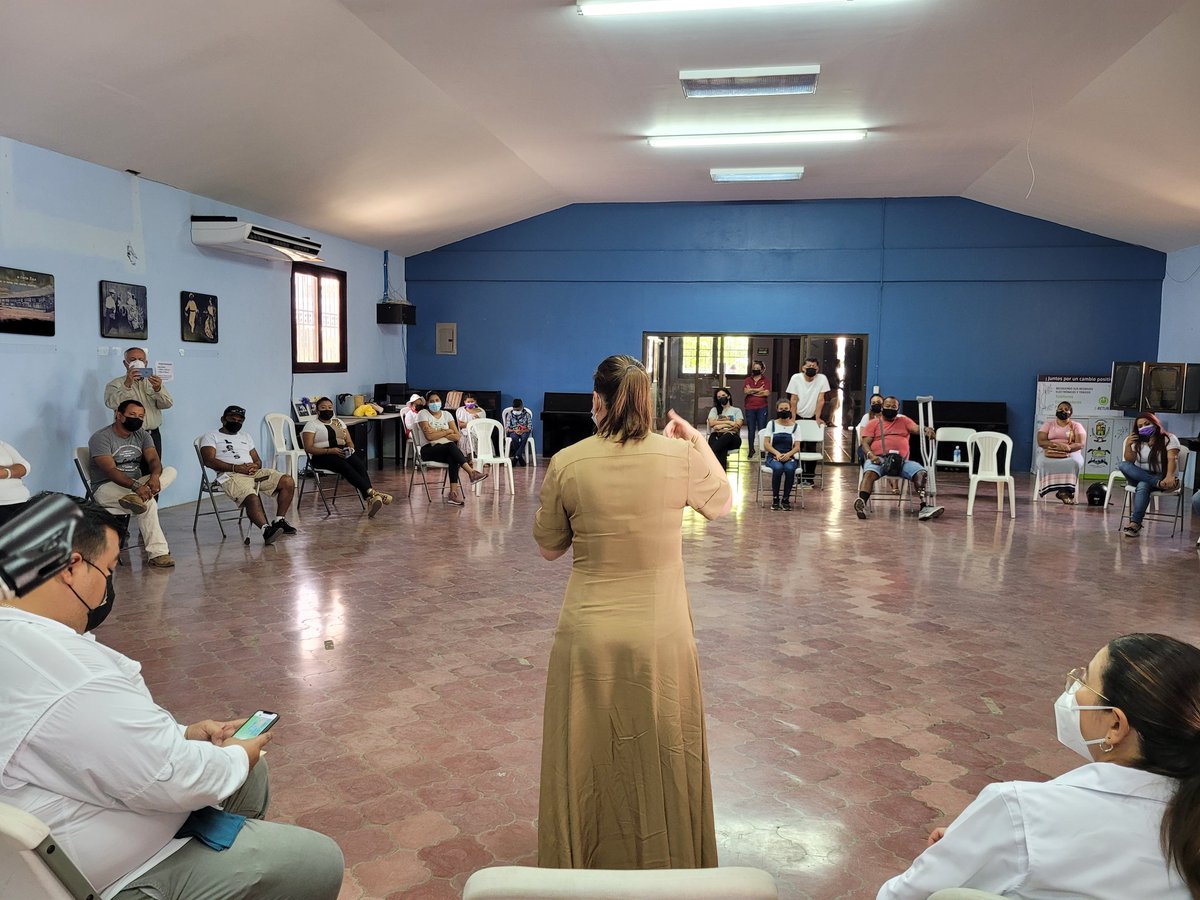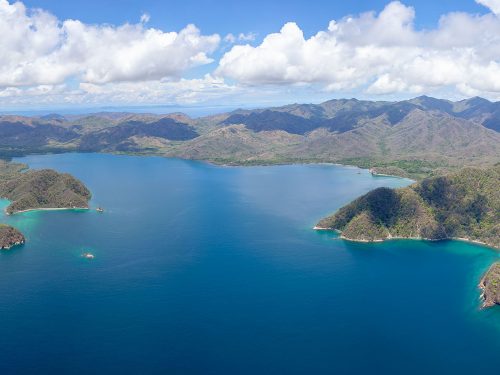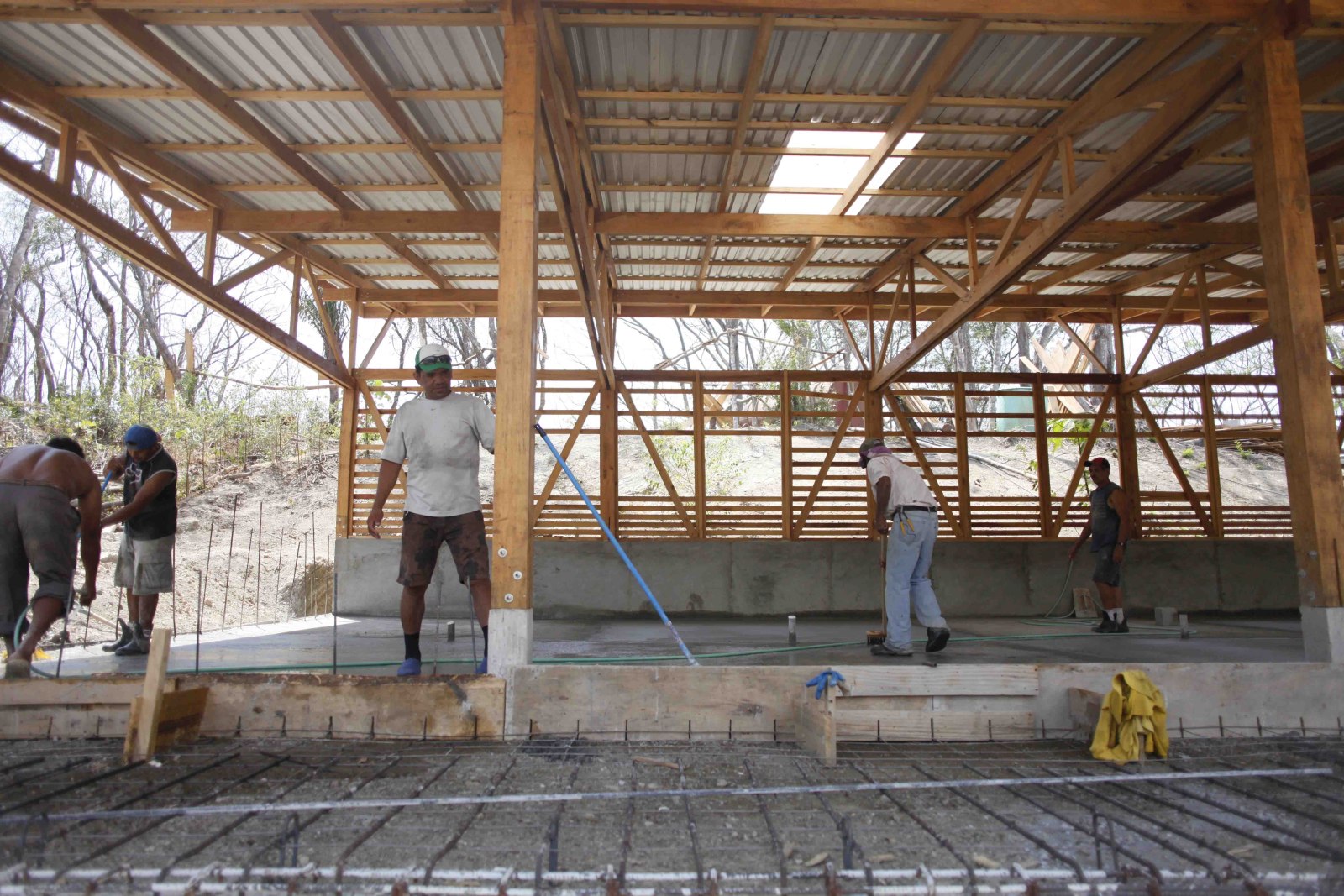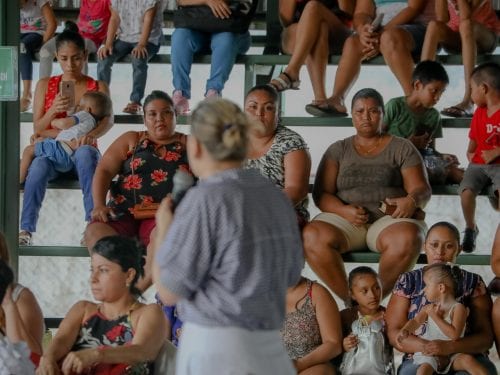
Paula Herrero’s life will change when she has her own house. Until that happens, she lives in the house of some relatives, but between so many noises and seven people living together, the space seems smaller and smaller.
She can’t work from home as a stylist because there isn’t enough space where she lives, but she can’t look for a job out of the house either because she’s dedicated to caring for her 9-year-old daughter, who has a disability. She believes that a place just for her and her daughter would make her life take another course.
I could have clients come to the house and help myself and my daughter. I can’t do that right now. It would mean recovering hope of having a better life,” said the single mother.
Paula was one of the people that a group of supposed developers recruited for Don Mario, a housing project that never managed to receive all of the necessary permits for the land and whose managers ended up disappearing, without giving answers to the families involved, according to those affected.
Although Paula said that she had lost hope of having a house of her own, now she has decided to believe again. She is one of the female heads of households who would benefit from the Zona Azul (Blue Zone) project, a plan that stipulates the construction of at least 150 social interest homes for Nicoyan families in poverty, made up of senior citizens or people with disabilities. The people who receive the benefit wouldn’t pay premiums or any other cost for the construction of the houses.
When the Don Mario project failed, the Asociación Pro Vivienda Guanacasteca (APVG- Guanacastecan Pro-Housing Association), an group of women who were also deceived by Don Mario got organized, starting again with those lists of people and beginning a totally new project, which does not involve the former developers of the failed project in any way.
The APVG is waiting for the Municipality of Nicoya to approve the building permits in order to start the procedures to request project approval from the Housing Mortgage Bank (BANHVI – Banco Hipotecario de la Vivienda) and the National Institute of Housing and Urbanism (INVU- Instituto Nacional de Vivienda y Urbanismo). This would be the first social interest housing project developed in Nicoya in almost 30 years, according to BANHVI’s website.
According to the developer in charge of the construction, Marcos Sequeira, the project is “just getting started” and he still can’t say when houses would be ready for the families who would potentially benefit.
Even so, Zona Azul has already been declared of social interest by the Coocique credit cooperative and they have all the necessary permits from AyA, SETENA and Coopeguanacaste, according to documentation obtained by this news outlet.
Project Rising from the Ashes
The APVG began to devise the community project in 2019, when they attended a meeting with the former first lady of the republic, Claudia Dobles, which was held at the school in San Martin in Nicoya to look for answers about Don Mario. At that time, they weren’t organized, but the uncertainty caused them to work together to demand more clarity on whether or not they were going to receive the houses that the developers of the old project had offered them.
On that occasion, the first lady’s office informed them that the chances of Don Mario progressing were almost nil and that they couldn’t do anything about it because it was a private initiative.
We were heartbroken. Many [of us] lost a lot of money and effort,” recalled the association’s president, Lorgie Moraga.
Dobles’ advisers informed the mothers that although the State itself couldn’t propose a housing project, the first lady was willing to advise them so that they could start a new social housing project. Lorgie and the rest of the mothers agreed without the slightest hesitation. In the end, the leader said, they didn’t have much to lose.
For the next three years, the women sought support from state and private institutions
and developers with the help of the architect, Dobles. That’s how they were able to form an alliance with the Municipality of Nicoya, developers and several ministries.
We started as a mutual support group, because in the end, we felt robbed, cheated. From there, we started knocking on the doors that occurred to us, talking to developers and people who would help us fulfill this dream,” said the vice president of the association, Hazel Dinarte.
The land where the APVG plans to build the project is located near the National University (UNA) in Nicoya. It is currently optioned, which means that the project completed a prequalification process to purchase it and is waiting for the bank to give them the credit. In addition, it already has the water capacity to accommodate up to 300 homes, according to documents from AyA.
In this first phase, explained Moraga, they will only build 150 structures, but they haven’t ruled out expanding the housing development later.

Photo: Municipality of Nicoya
Support from Organizations
Moraga said that as part of their work, they went to community leaders from downtown Nicoya so that they would put them in contact with the rest of the victims of the old Don Mario project. Zona Azul is collaborating with the Nicoyan Association of People with Disabilities (ASONIPED for the Spanish acronym), multiple organizations for senior citizens and development associations.
According to the president of ASONIPED, Patricia Ruiz, her association has a list of at least 46 people with disabilities who could qualify for the project. Five of them are confirmed and have attended meetings convened by the housing association.
The Municipality of Nicoya is supporting the project, but Mayor Carlos Armando Martinez clarified that it’s not a municipal initiative and that by supporting it, “neither the municipality nor the mayor would be benefiting directly.”
As mayor, I worked as a bridge between government institutions and the association,” Martinez clarified. “I have to say that we aren’t benefiting from accelerating processes in any way, but since it is such an important project, we do help guide the developer and the leaders,” he added.
The association’s vice president, Hazel Dinarte, reported that the municipality didn’t begin to collaborate with the women until they presented plans, action routes and formal requests for permits. “The mayor was afraid to get involved at first, because of what happened with Don Mario, but he understood,” she said.
Martinez said that the municipality doesn’t have information about what happened with the Don Mario project. The women also mentioned that they haven’t received any updates on the subject for “several years now.”
Project Plans to Reduce Housing Gap in Nicoya
The president of the association affirmed that although Zona Azul is the first step to bring housing to Nicoya, it won’t be the last project carried out by the APVG. Moraga said that since they started working on the project, they discovered that there are groups that are more affected by housing problems, such as women and the elderly.
These projects are sometimes the only solution for those people to find a place to live,” she remarked.
An expert in social housing, Esteban Amador, agreed with her. Amador affirmed that social projects like Zona Azul, together with other social plans such as loans for entrepreneurs and small and medium-sized enterprises (SMEs), are a platform to eradicate the cycle of poverty in at-risk areas.
The specialist believes that if a family in a situation of poverty stops using its capital to pay rent, it can be used for other items that help the nucleus to get out of the cycle of poverty, such as paying off debts, or investing in education and new businesses. “It also makes it so families invest in the future, without worrying about ending up homeless,” said the specialist.
Due to the requirements, percentages of premiums and interest rates in the current housing scenario, Amador said that these types of projects are the only opportunities for low-income families to gain access to their own home.
The expert also suggested that the housing situation is even more complicated for women who are mothers, because not having a home can make them more vulnerable to situations of domestic violence or economic dependence on their partners.
For Paula, a place of her own would give her economic independence and a healthier place for the psychosocial development of her disabled daughter.
What we hope for is to help women like us,” said Lorgie Moraga.
The association will continue to wait for municipal approval in order to start the journey toward “a better Nicoya,” as they themselves put it.







Comments